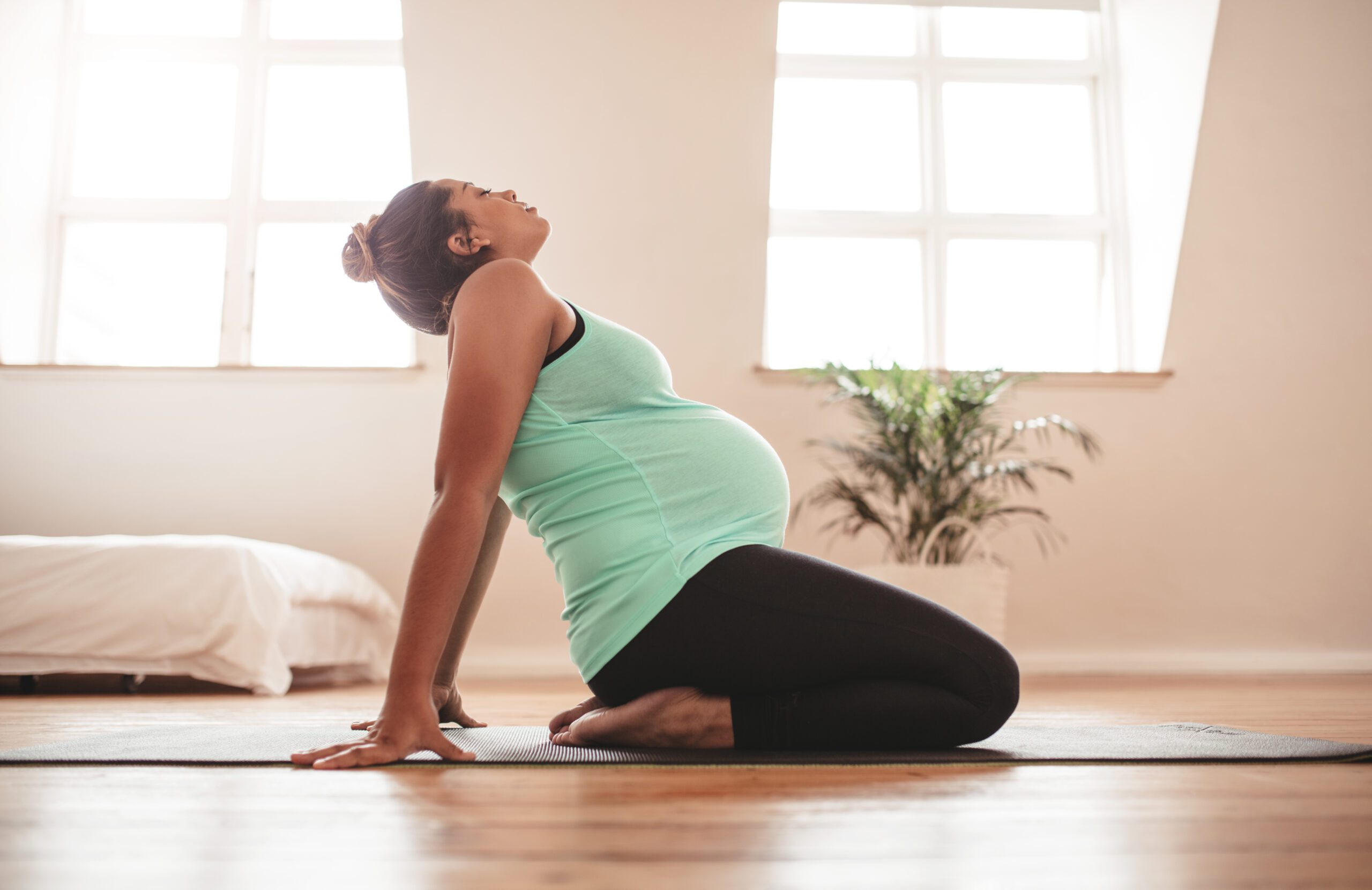
07 Oct Ignoring Your Emotional Health During Pregnancy? Here’s Why You Shouldn’t
Every pregnancy is a different and unique experience that comes with its own emotions, cravings, symptoms and quirks. This story begins many years ago, when I first got pregnant.
While we were excited, my partner and I also had our own share of fears and worries, as the journey to pregnancy had been a long one. I, for one, was going through a roller coaster of emotions as I embarked on a journey towards becoming a new mom or new parent.
It has always been considered that motherhood is something that comes very naturally to women. Before pregnancy I had already begun doubting myself. It took a long time for me to conceive, and that began to take a toll on my mental health and emotional well-being.
After taking multiple tests at home, my partner and I also got tested at my doctors clinic. Once the pregnancy was confirmed, we were over the moon and jumping with joy. As my partner and other family members hugged me, I suddenly was overcome with panic. Would these hugs crush the little baby inside me?
I tried to calm myself down, and thanked my loved ones for their warmth and blessings. The elders in my family teased me as naïve and inexperienced when I shared my worry with them. I tried to laugh it off and let it go.
Little did I know that was only the beginning. My mental health was poor – I was feeling low, demotivated, tired, and sleepy all the time. Objectively, I knew that my pregnancy should be one of the happiest moments of my life. But, I struggled to smile everyday.
I was constantly overwhelmed by negative thoughts and emotions. I would be terrified that the food I ate was too heaty, and refused to eat anything other than bland food, I wouldn’t even mention my cravings for anything sour or sweet during pregnancy. Every time I had nausea or morning sickness, I was worried about how it would impact the baby. I pinged and called my doctor incessantly, and she reassured me that everything was normal several times during the initial days of my pregnancy.
Even when I slept these thoughts would not leave my mind. I would be plagued with nightmares of my life post pregnancy. In my dreams my day was frequently interrupted by excessive crying of the baby, which would not stop no matter how much I coaxed them or tried to calm them down.
Just as my first trimester was getting done, one of my close friends developed malaria. I wanted to visit her and check in to see how she was doing. But, I realized I couldn’t do that as it could harm my baby. As my pregnancy moved further along, I started distancing myself from my friends. I was anxious about them passing germs on to me, and subsequently to my baby. I even denied them any opportunity to throw me a baby shower.
There were several times when my partner and my family told me that my emotions were all over the place and I wasn’t behaving properly. My partner especially, was bearing the brunt of this. Once, we had a loving and warm relationship. But now, every movement they made bothered me. We got into arguments all the time. They told me they felt like they were walking on eggshells at home as I was always irritable and just looking for flaws to start berating them about.
But that wasn’t the case. I still loved my partner, but now that we were becoming new parents, I expected them to be better than what they were before. I was always asking them to improve themselves – don’t laugh so loud, don’t slouch, sit with your back straight, don’t fiddle with your thumbs while sitting idly, and other small habits which had never mattered to me before my pregnancy.
They were still willing to put up with it as they understood my mental health and emotional well-being was important during that time. They did bring this up with my doctor, and my doctor had a lot more to say. They told me I had to take care of myself and I was showing signs of some mood disorders. I laughed and said it wasn’t a mood disorder, but just regular mood swings that came with pregnancy. My doctor once again tried to explain to me, but instead I asked about a flutter I was feeling and changed the topic.
My doctor answered my questions but warned me that if I continued down the path I was on I would struggle during the later stages of pregnancy, delivery, and early days of being a new mom. I immediately burst into tears and even as my partner rushed to comfort me, I accused my doctor of trying to play on my emotions and cause anguish in me.
My doctor said they were just stating the risks and recommended that I should see a mental health expert to discuss any possible mood disorders I may have, how I could manage my emotions and achieve emotional well-being during pregnancy.
Over the next few days my negative thoughts and emotions increased. All I could think about was all the ways things could go wrong. In my next check up, they found I had lost weight, my blood pressure was high, and my baby’s heart rate was also increased. I got even more anxious and unknowingly this was causing my baby to suffer as well.
I still refused to see a professional, as I was convinced I did not need to. In a country where every day over sixty thousand women became new moms, I could also have a baby without the need for mental health treatment. Seeing how stubborn I was, and how low my emotional well-being was, my partner suggested we go on walks in nature to help me feel better. I wasn’t sure if that was a good idea as I was afraid of germs or accidents that could happen. But my partner convinced me. They had done a lot of research on the internet and showed me all the benefits of spending time in nature.

I agreed and we started spending time frequently outdoors. It was on one of these walks in between some hills close to our house that I first went into labor – or so I thought. I yelled at my partner and we immediately went to the hospital. The entire ride there I thought I was going to lose my baby. I blamed my partner and the whole way to the hospital I scolded them for being an irresponsible parent and not thinking about the safety and well-being of our baby. When we reached the hospital, I was told that what I was experiencing were braxton-hicks contractions. My partner was deeply hurt by the things I had said in the heat of my emotions. I tried apologizing but they didn’t want to hear it.
A few weeks later, this time while at home, as I had given up on walks or going outside at all, I again started experiencing contractions. I tried to be more calm about it, and told my partner. We were still weeks away from the actual date of delivery, but I was in much more pain than earlier. My partner was supportive, and helped me to the car and once again we set off to the hospital.
My doctor was shocked. I was actually in labor, even though it was too early in my pregnancy. They tried to be as gentle as they could with my partner and me and explained that I was in preterm labor, my blood pressure was very high, and there was a risk of me developing preeclampsia.
I was so hurt and upset, I didn’t know what to say or do. Despite all the emotions I had been feeling up until that point, I was overcome by numbness at that point. My partner’s emotions were clear on their face though. They had understood my doctor’s words better than I had. Even though we had both tried so hard to do the right things during this pregnancy, there was now a chance that we could lose the baby, or even lose me, during delivery.
I nodded to whatever my doctor said and followed their instructions. The delivery was painful, and I passed out shortly after, due to excessive blood loss. When I woke up I found out that my baby was in the neonatal intensive care unit, or the NICU. Every ounce of self-doubt I had came rushing back to my head. I felt like I had failed my baby. My partner held my hand and told me it would be okay. They told me they were so glad they hadn’t lost me, and that we could get through this situation.
When we saw our baby, it was so different from what we had imagined it would be like during pregnancy. All through my pregnancy, I had been talking to my baby, telling my baby how I couldn’t wait to hold them in my arms. And now, even with my baby right in front of me, I couldn’t pick them up. They were inside a small glass box, with tubes and wires going inside. The sight was so heartbreaking and scary and once again this took a toll on our emotional well-being and mental health.
However, a few weeks later, things changed. Our baby was healthier, and was released from the NICU to us. During my pregnancy, I had imagined my baby would be perfect. But, in reality my baby wasn’t perfect. It was a struggle to breastfeed, and my baby wouldn’t latch. My baby didn’t sleep much and always had colic. Those nightmares of my day being disrupted by excessive crying of the baby were starting to come true. I had been around many other babies earlier in life, and I didn’t know why my baby was acting like this. I was angry with my baby for not being the perfect little angel I had imagined, and guilty and ashamed for feeling this way towards my baby.
My anxiety and stress went up. I still hadn’t agreed to meet any of my friends, and other than immediate family members and doctors nobody else was allowed to meet my baby. Even the naming ceremony had been a very private affair. I was growing more worried about my partner as well. Even though I was trying so hard to breastfeed, they would always ask me to try bottle feeding instead. They would try to take the baby from me at night in an attempt to quiet the crying. And to my dismay, they were much more successful at it than me. I felt like a failure at that time. They accused me of caring more about my role as a new mom than of actually caring about my baby.
My suspicion towards my partner increased when I began to feel like they were absent. They would suddenly disappear for an hour or so and then come back. I finally confronted my partner when they told me they didn’t want to have more children. We had always discussed that we would have two children. During the confrontation, they told me they didn’t like who I became during my pregnancy, that I was no longer myself and they didn’t recognise me anymore. They had been going to therapy, to deal with their own emotions around the pregnancy. They convinced me to go into couples counseling with them to work on our relationship. During these conversations with the therapist, I realized just how my emotions had impacted their mental health. I also started to recognise how much I was struggling.
My partner encouraged me to seek mental health treatment for myself. I spoke to a therapist and was diagnosed with depression and anxiety. One day, after I had finally gotten my baby to sleep, I broke down into tears regretting how much I had suffered and caused my family to suffer because I believed I had to do everything by myself. My therapist helped me realize that it was okay if I reached out for help or had my own struggles. I slowly began to make amends with my partner, and realized that we were on the same team when it came to raising our baby. I also started speaking to my friends again. There were some who were upset by me cutting them off, but others who welcomed me back with open arms.
My therapist also helped me come to terms with my fears and anxieties and taught me techniques to manage my emotions so I could still look after my baby. Over time, things changed and I felt more and more like myself. I was even bonding better with my baby.

A few years later, my partner and I decided to have a second child. This time, I used what I had learned in therapy. I reached out to my friends and family for support, kept myself busy during pregnancy, spent time with my partner and elder kid so they knew how much they meant to me, continued sessions with my therapist, and even enrolled in a pregnancy mindfulness program based on their recommendation.
Every time I had negative thoughts I would use skills my therapist taught me to manage them, or would talk out my fears with my partner and doctor. My partner helped me to see the positives, and we spent time trying to find solutions to my fears. I allowed myself to feel all my emotions – the good and the bad. I didn’t try to bottle them up, or focus only on the negatives. I paid attention to my own needs and focused on taking care of myself as well – eating the things I wanted to, staying engaged in my daily activities, and maintaining my social life.
The skills I learned in my pregnancy mindfulness program also helped me develop a deeper bond with my baby. I felt stronger and more confident in my ability to be a new mom once again. While I would still be mildly anxious when we went to the doctor, I was still feeling better, and it showed in my lab results. All my tests were normal, and my baby was also doing fine.
The best thing that happened was when I came home and my friends threw me a baby shower to surprise me. The first time round, I hadn’t gotten the opportunity to enjoy such an experience. My first kid gave me a gift – a handmade card declaring me as the World’s Best Mom!
All those emotions of resentment, fear, guilt, anger, sadness just washed away, and in that moment all I could feel was an overwhelming sense of joy and calmness during my pregnancy.
When I did go into labor, it was almost on the exact date the doctor had said, and within a few minutes of going into labor I had delivered a healthy baby. The dream I had of holding my baby seconds after delivery was coming true, and that was a precious moment that I will hold onto forever.
I shudder to think what would have happened if my partner had not given me the wakeup call I needed and encouraged me to seek help. There’s no shame in having support during your pregnancy. After all – your mental health and emotional well-being are of vital importance during your pregnancy.
— A mom who experienced mental health challenges during pregnancy and learned to cope with it at the right time.

No Comments